[2007] 1 SLR(R) 629 - Singapore Law
[2007] 1 SLR(R) 629 - Singapore Law
[2007] 1 SLR(R) 629 - Singapore Law
You also want an ePaper? Increase the reach of your titles
YUMPU automatically turns print PDFs into web optimized ePapers that Google loves.
652 SINGAPORE LAW REPORTS (REISSUE) [<strong>2007</strong>] 1 <strong>SLR</strong>(R)<br />
However, we are of the view that this argument in the way it has been<br />
expressed may not by itself, be sufficient to prevail over the plain meaning<br />
of s 12(7).<br />
47 In our view, this argument in favour of giving effect to the plain<br />
meaning of s 12(7) of the IAA would have taken on a different complexion<br />
if s 12(7) of the IAA were concerned solely with the power of the court to<br />
grant interim measures and nothing more. In that situation, s 12(7) may be<br />
said to operate only intra-territorially and would not intrude into the<br />
powers of the foreign arbitral tribunal (which would be the legitimate<br />
concern of the relevant foreign state). As explained by Lord Mustill in<br />
Channel Tunnel Group Ltd v Balfour Betty Construction Ltd [1993] AC 334<br />
(“Channel Tunnel”) at 365:<br />
The purpose of interim measures of protection … is not to encroach<br />
on the procedural powers of the arbitrators but to reinforce them, and<br />
to render more effective the decision at which the arbitrators will<br />
ultimately arrive at on the substance of the dispute.<br />
In such a situation, there should be no reason for a foreign state to object to<br />
s 12(7) providing assistance to international arbitrations conducted in its<br />
territory. However, serious objections would arise if s 12(7) has a greater<br />
reach than merely provide non-intrusive assistance to foreign arbitration.<br />
We consider this argument next.<br />
Argument against interfering with rights of parties and intruding into powers<br />
of foreign arbitral tribunals<br />
48 Prakash J alluded to this issue in her grounds of decision where she<br />
questioned whether Parliament had intended for <strong>Singapore</strong> courts to<br />
intervene in foreign arbitrations with respect to its powers in ss 12(1)(a) to<br />
12(1)(i). However, she did not pursue this question further. The nature of<br />
this objection can be appreciated if we posit a scenario in which Swift-<br />
Fortune had applied under s 12(7) for an order that the parties give<br />
evidence by affidavits or that Magnifica give full discovery of documents or<br />
answer interrogatories pursuant to s 12(1) of the IAA. On Swift-Fortune’s<br />
interpretation of s 12(7), the court would have power to make such orders.<br />
This result has two implications. First, it will mean that these statutory<br />
powers have been impliedly incorporated into the arbitration agreement<br />
between the parties, whether or not they had agreed to them. Secondly, the<br />
exercise of such powers may cut across or intrude into the powers of the<br />
foreign arbitral tribunal conducting the arbitration under a foreign law.<br />
Given these implications, the question that naturally arises is whether<br />
Parliament intended s 12(7) to have this effect.<br />
49 A similar issue arose in Channel Tunnel in connection with s 12(6)(h)<br />
of the 1950 Act ([23] supra). The appellants made two arguments that an<br />
English court had the power to grant an interim injunction in aid of an


![[2007] 1 SLR(R) 629 - Singapore Law](https://img.yumpu.com/7082457/24/500x640/2007-1-slrr-629-singapore-law.jpg)
![[2011] 1 SLR 727 - Singapore Law](https://img.yumpu.com/51140774/1/166x260/2011-1-slr-727-singapore-law.jpg?quality=85)
![[1983-1984] SLR(R) 447 - Artic Builders & Co - Singapore Law](https://img.yumpu.com/50909204/1/164x260/1983-1984-slrr-447-artic-builders-co-singapore-law.jpg?quality=85)
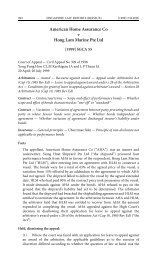
![[1996] 2 SLR(R) 292 - Lim Eng Hock Peter v ... - Singapore Law](https://img.yumpu.com/47482222/1/164x260/1996-2-slrr-292-lim-eng-hock-peter-v-singapore-law.jpg?quality=85)
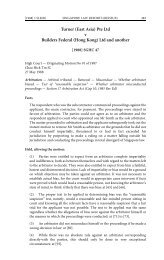
![[2006] 1 SLR(R) 197 - PT Asuransi Jasa Indonesia - Singapore Law](https://img.yumpu.com/46425352/1/164x260/2006-1-slrr-197-pt-asuransi-jasa-indonesia-singapore-law.jpg?quality=85)
![[1985-1986] SLR(R) 503 - Woh Hup (Pte) - Singapore Law](https://img.yumpu.com/45676364/1/164x260/1985-1986-slrr-503-woh-hup-pte-singapore-law.jpg?quality=85)
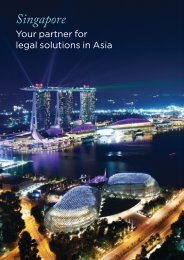
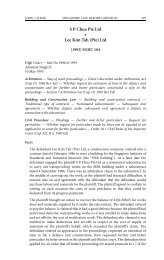
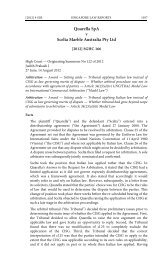
![[2010] 2 SLR 821 - Singapore Law](https://img.yumpu.com/43145563/1/166x260/2010-2-slr-821-singapore-law.jpg?quality=85)
![[2007] 1 SLR(R) 597 - PT Asuransi Jasa Indonesia - Singapore Law](https://img.yumpu.com/42983489/1/164x260/2007-1-slrr-597-pt-asuransi-jasa-indonesia-singapore-law.jpg?quality=85)
![[1989] 1 SLR(R) 433 - Singapore Law](https://img.yumpu.com/42649524/1/164x260/1989-1-slrr-433-singapore-law.jpg?quality=85)
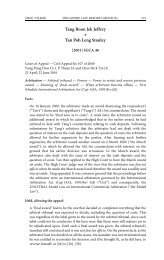
![[1997] 3 SLR(R) 360 - Singapore Law](https://img.yumpu.com/42287507/1/164x260/1997-3-slrr-360-singapore-law.jpg?quality=85)